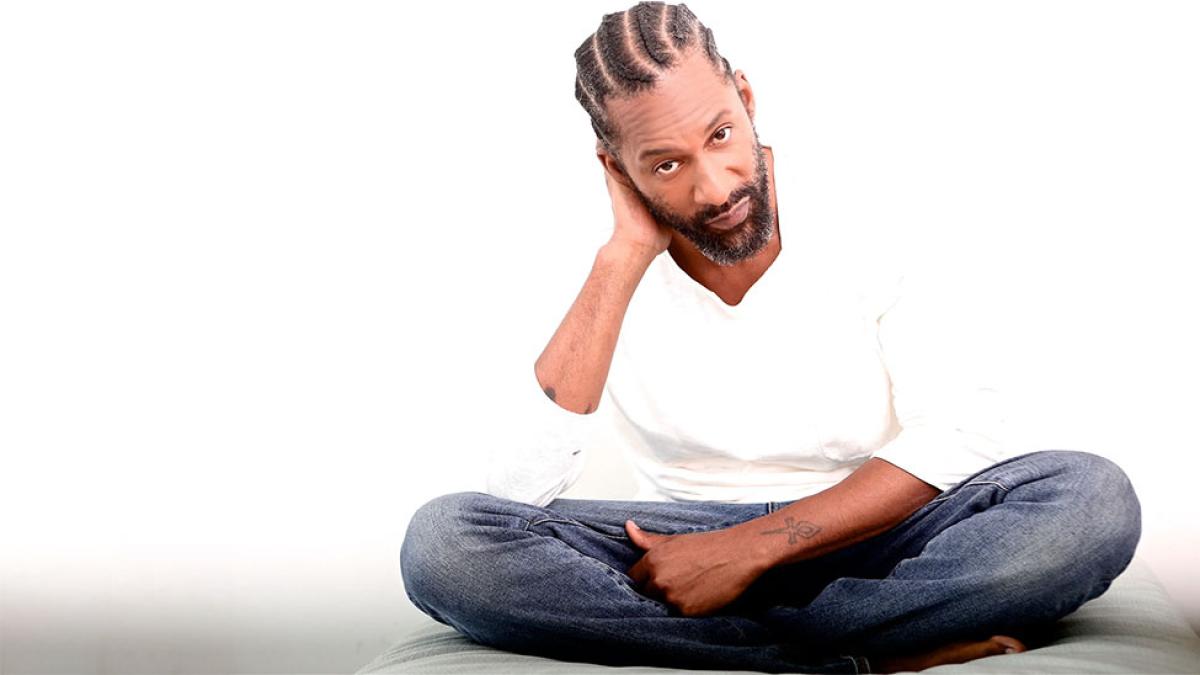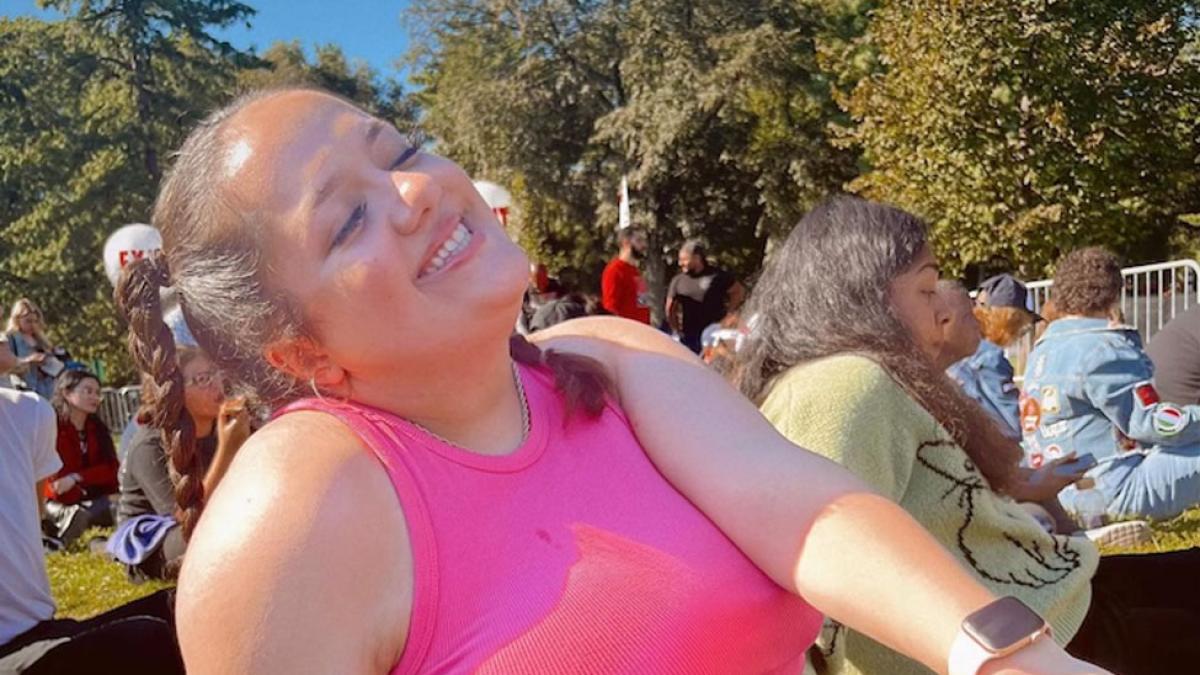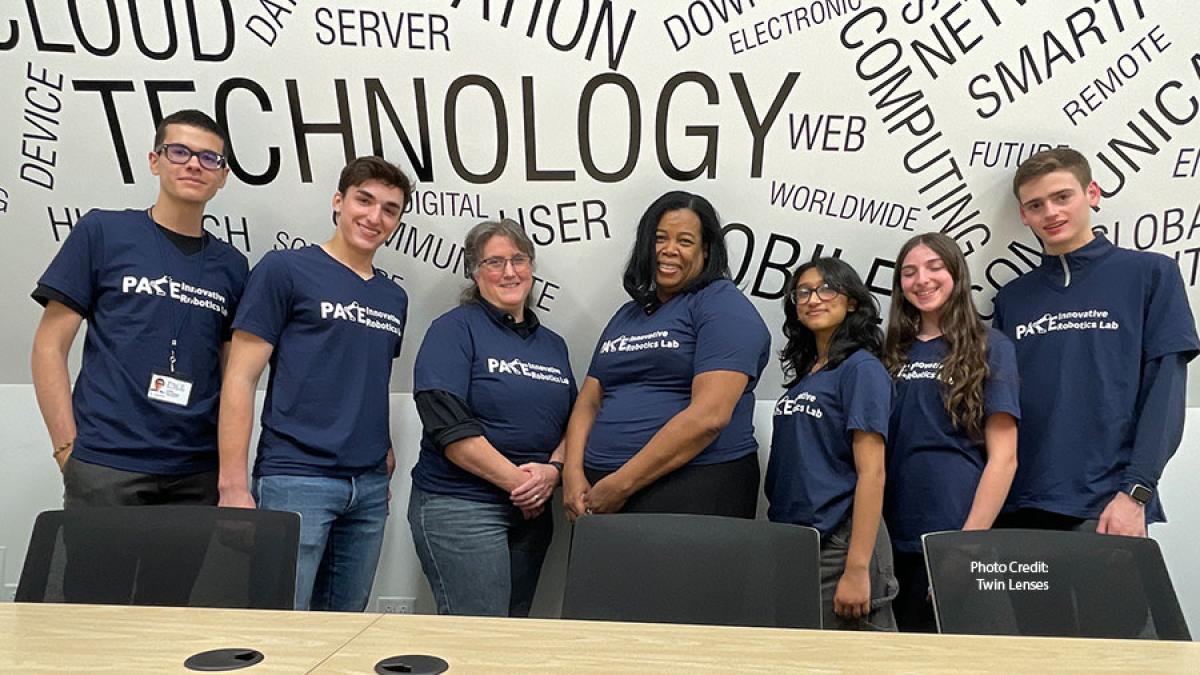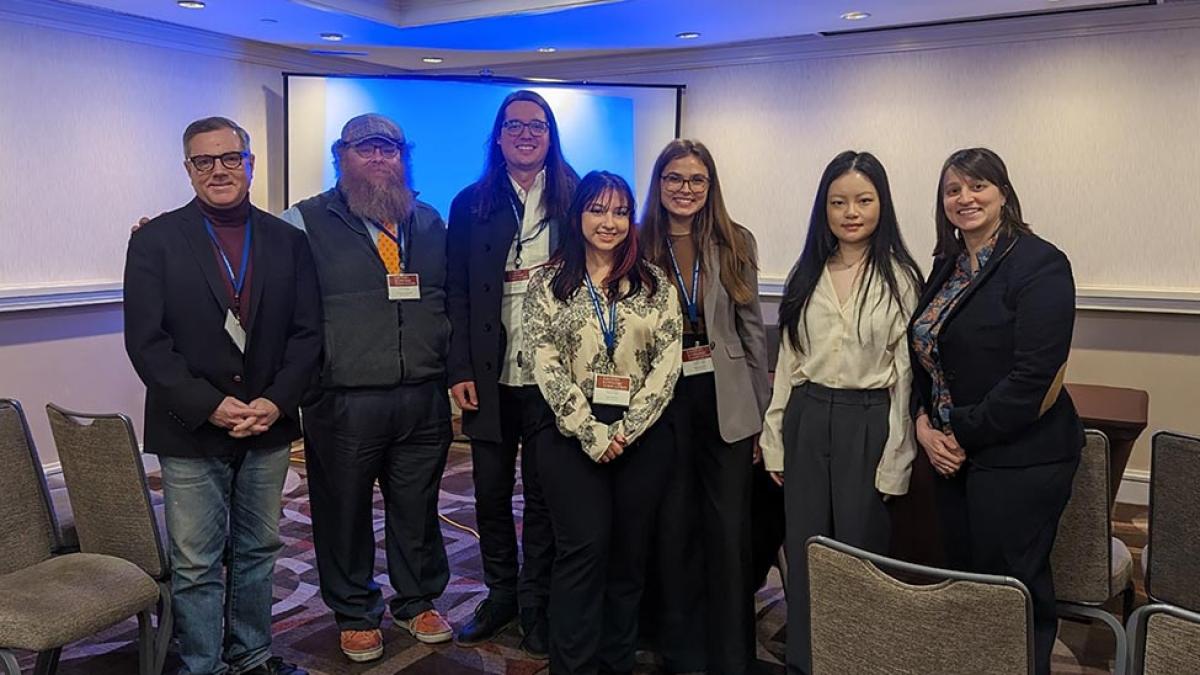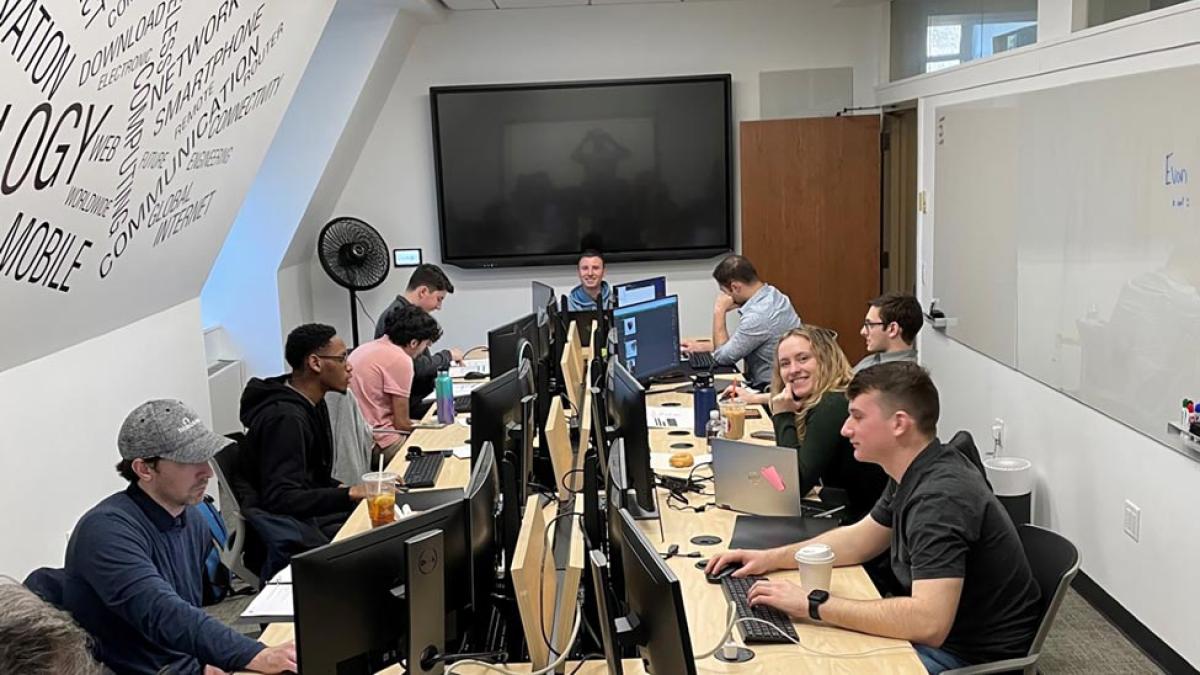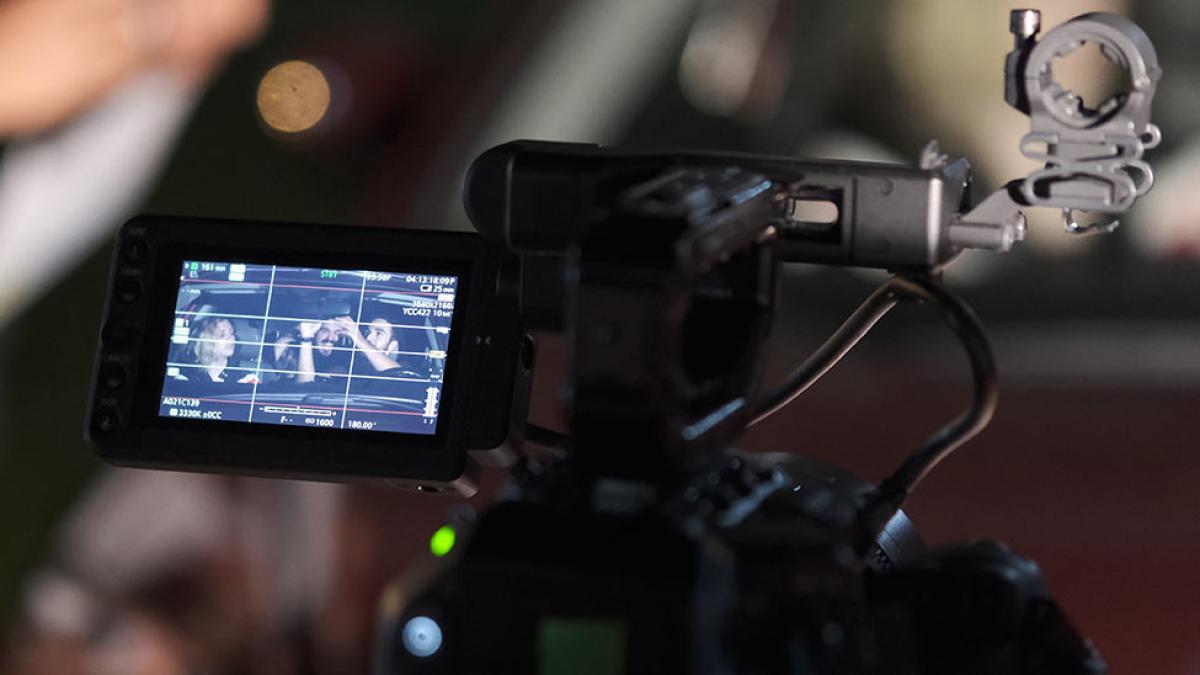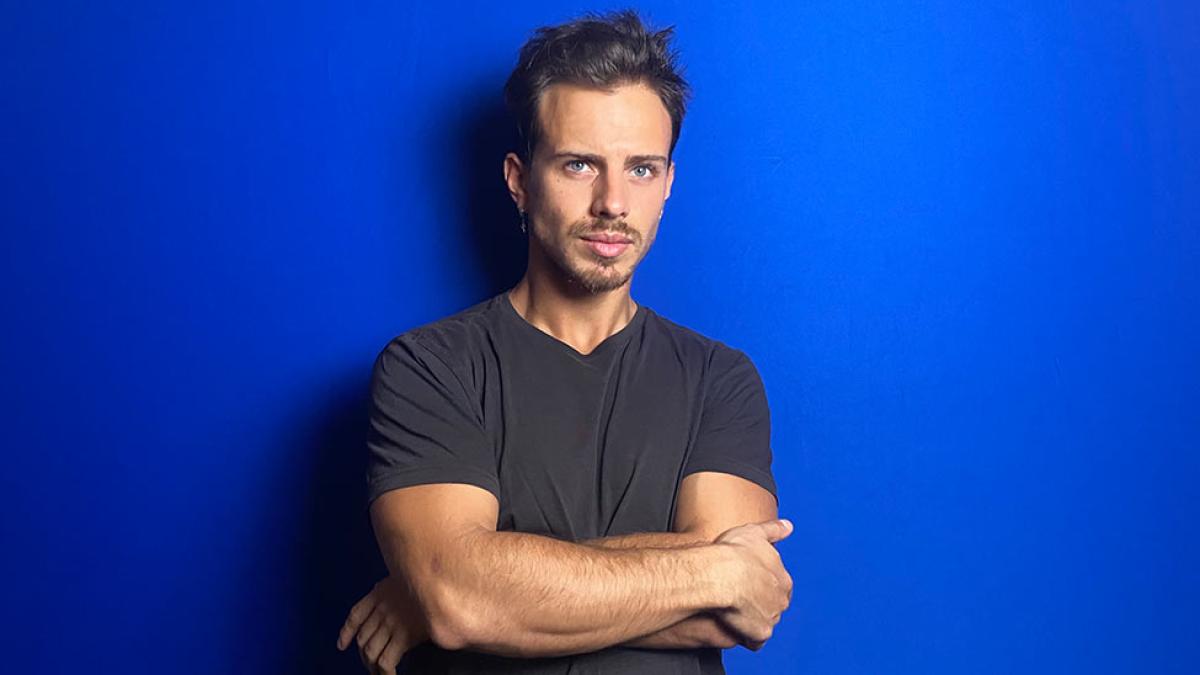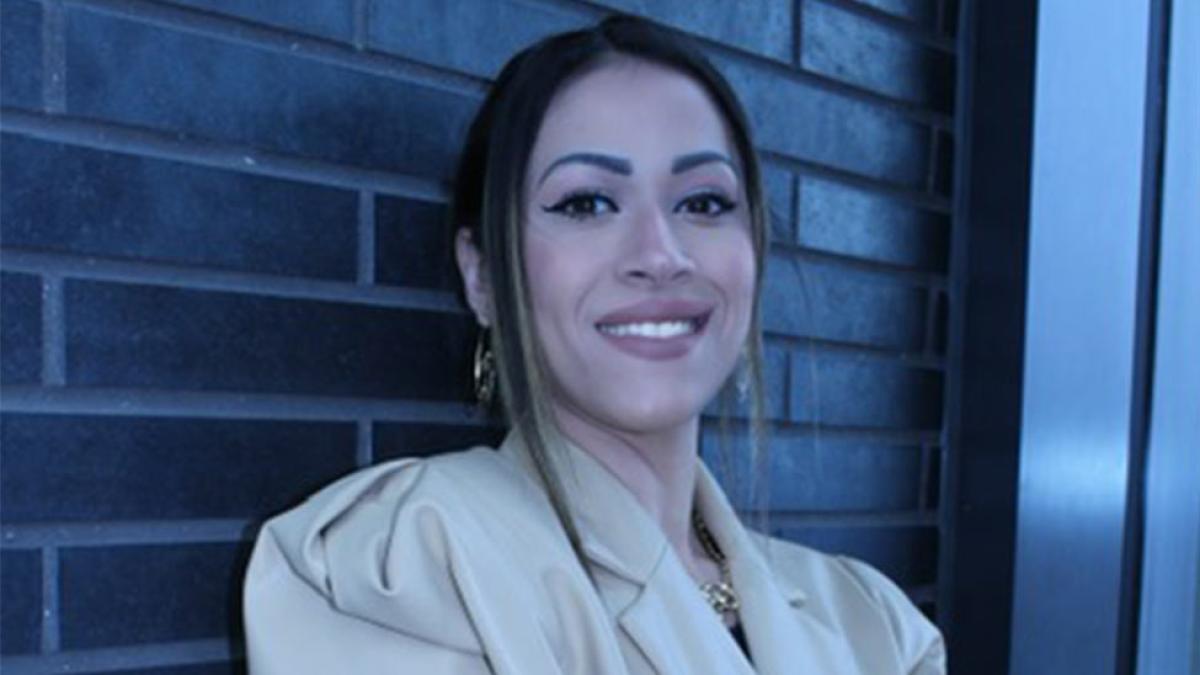
A Look Back at America's Changing Relationship with Milk
"Sometimes women were unable to feed their children with their own bodies and therefore were turning to the cow's milk," said Pace University’s Dyson Professor E. Melanie DuPuis, author of "Nature's Perfect Food."
Law Dean Named to WCA Board
Horace E. Anderson Jr., dean of the Elisabeth Haub School of Law at Pace University in White Plains, has been named to the Board of Directors of the Westchester County Association (WCA). Anderson’s appointment is a reflection of the long-standing partnership between the law school and the WCA on policy and programming, including collaborations with its Land Use Law Center and Energy and Climate Center. Together, they launched the “Clean Energy Program Portal,” which was recognized by Westchester County last year at its third annual ECO Awards.

Pace University Esports Voted No. 1 Program in the Nation
Pace University's Esports Program has taken the college gaming world by storm, winning a March Madness-styled bracket for college esports programs hosted by Esports Foundry.
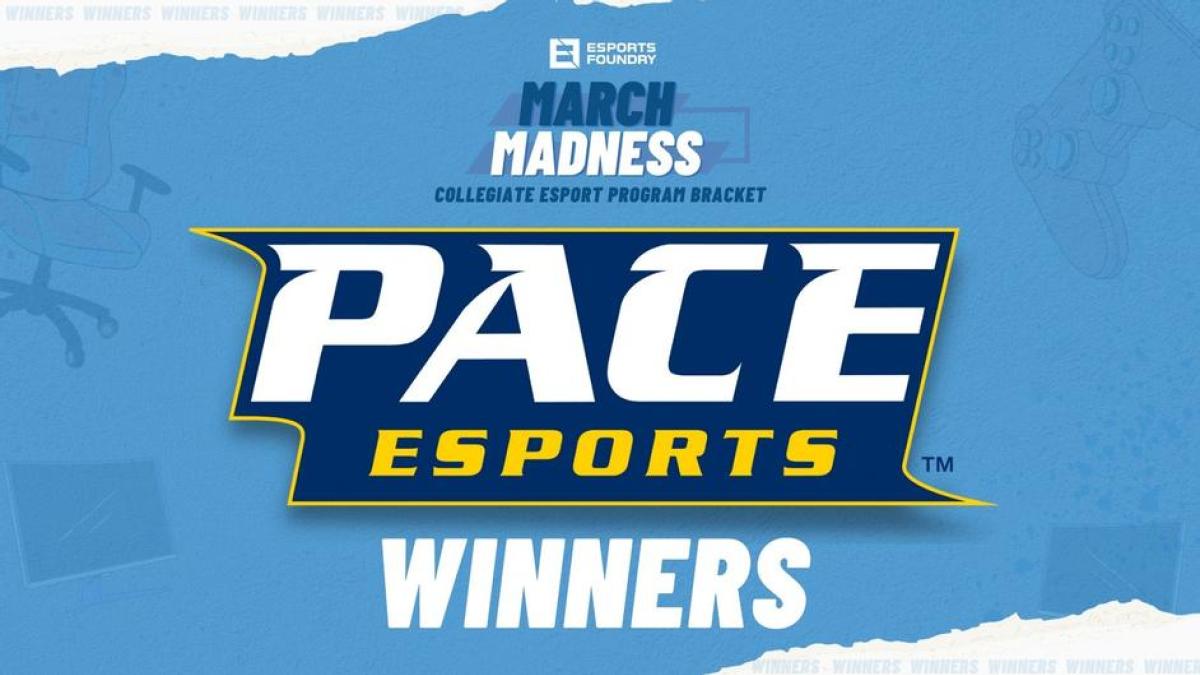
Head-to-Head Voting Tournament Featured 32 of the Top Programs in the Country
Pace University's Esports Program has taken the college gaming world by storm, winning a March Madness-styled bracket for college esports programs hosted by Esports Foundry.
The head-to-head voting tournament featured 32 of the top programs in the country selected for their leading competitive teams and standout gaming communities. After five rounds of polling which generated over 155,000 views and over 10,000 votes, Pace Esports emerged victorious.
On their road to victory they defeated top-end schools including Akron University, Texas A&M University, Ohio University, Northwood University, and UC San Diego.
"Winning March Madness is a landmark moment for our program and a testament to the unwavering passion and potency of our gaming community," said Pace's Director of Esports Jesse Bodony. "But more than that, the success of this tournament represents a significant milestone in the growth and recognition of scholastic gaming. It's a win for everybody."
The victory also highlights the growing scholastic esports scene in New York, which played an important role in helping Pace secure the championship. With a growing number of universities and high schools recognizing the value of esports as a competitive and educational activity, New York is emerging as a state ready to lead the charge in scholastic gaming.
Pace University has shown to be at the forefront of this trend, demonstrating its commitment to fostering a supportive and inclusive environment for gaming enthusiasts and spotlighting the exciting potential of esports in the academic arena.
About Pace University
Since 1906, Pace University has been transforming the lives of its diverse students—academically, professionally, and socioeconomically. With campuses in New York City and Westchester County, New York, Pace offers bachelor, master, and doctoral degree programs to 13,600 students in its College of Health Professions, Dyson College of Arts and Sciences, Elisabeth Haub School of Law, Lubin School of Business, School of Education, and Seidenberg School of Computer Science and Information Systems.
About Pace University Athletics
Pace University Athletics is a member of NCAA Division II, competing within the Northeast-10 Conference (NE10). Pace Athletics sponsors 15 intercollegiate sports, along with cheer and dance teams and a Pep Band. Known as the Setters, Pace's official mascot is known as T-Bone. In 2021-22, Pace student-athletes posted a cumulative grade point average of 3.33. Additionally, a total of 562 Setters were selected to the NE10's Academic Honor Roll with 69 student-athletes earning Academic Excellence with 4.0 semester GPAs. Twenty-two student-athletes earned NE10 President's Award for Academic Excellence, recognizing graduating student-athletes who have attained Magna Cum Laude at their institution, have participated in at least two seasons of NE10 competition and are current student-athletes at the time of graduation.
The Literary Entrepreneur
Although her passion lies in literature, Leslie Vargas '24 landed at the Lubin School of Business for our Entrepreneurship program to learn the finance and business practices that she says creatives are often not taught. Now, Leslie is using her leadership and business skills to run the Ebony Tomatoes Collective, a digital publication that publishes the work of Black women and non-binary people.
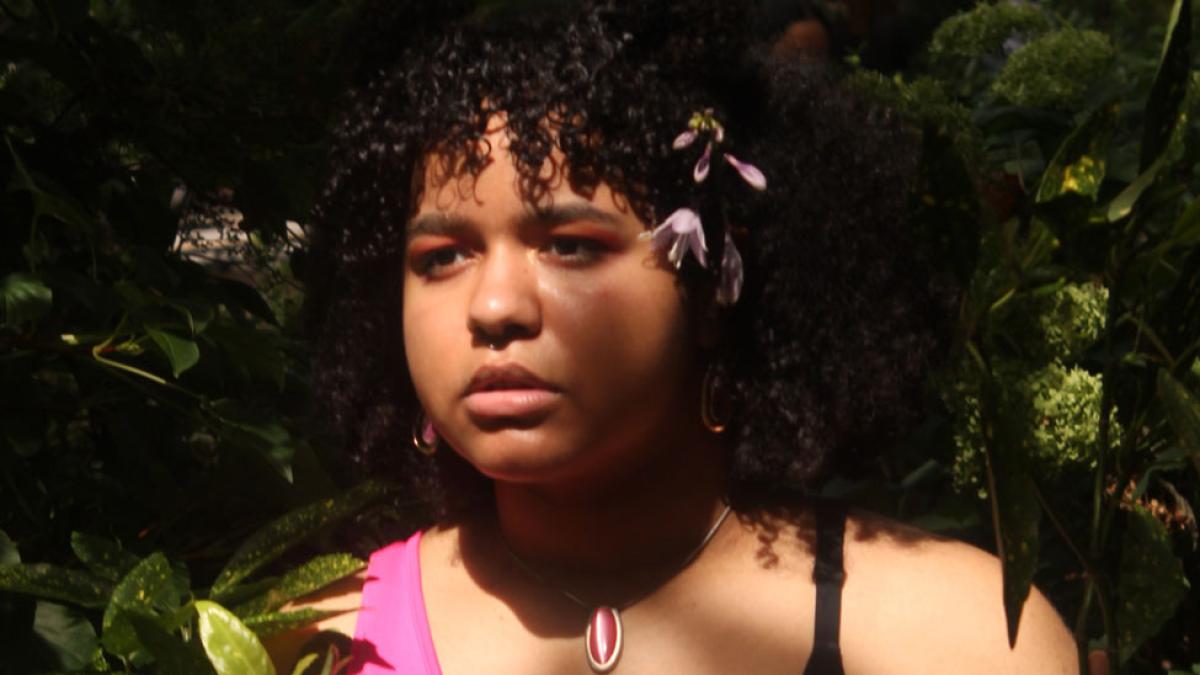
Leslie Vargas
Co-Founder and Editorial Manager, Ebony Tomatoes Collective
Class of 2024
BBA in Entrepreneurship with a minor in Creative Writing
Pronouns: She/Her

Although her passion lies in literature, Leslie Vargas landed at the Lubin School of Business for our Entrepreneurship program to learn the finance and business practices that she says creatives are often not taught. Now, Leslie is using her leadership and business skills to run the Ebony Tomatoes Collective, a digital publication that publishes the work of Black women and non-binary people.
Why did you choose Pace University and the Lubin School of Business?
Location was a big factor that contributed to selecting Pace University. I knew being around creative people would inspire me. I find that creatives are often not taught much about finance and being a starving artist is very real. We can bridge the gap by learning how to better position our work.
You co-founded Ebony Tomatoes Collective (ETC), a digital publication that publishes the work of Black women and Black non-binary people. What motivated you to start this publication?
I co-founded Ebony Tomatoes Collective and work as the editorial manager, which will turn into a more formal CFO position as we grow. My very talented business partner, Ava Emilione, who is an NYU student, started a Black women's writing group in 2021. I was in a public speaking class at Pace and had to give a speech about "a process," and I chose the process of self-publishing, since I had published my book Static in February 2022. After I gave my speech, a classmate approached me and asked if I was interested in joining Ava's group, which was independent of both Pace and NYU. We met once a week and improved our writing. I was proud to be part of a space that focused on the creative work of people that are often overlooked by the mainstream media. It is empowering. It is also humbling and genuinely has made me a better person. Ebony Tomatoes Collective was born out of that writing group. We have been operating for one year and have already been featured in two articles and have hosted three events. Our first event was a picnic in Central Park and our second was at a venue on 42nd Street. We also brought customers to a Black-owned business called Art to Ware, which is owned and operated by Lesley Ware. In January, we had a showcase at the Jersey Art Book Fair where we spoke about the importance of online publications. Our work is mostly remote and asynchronous which is great for the students and graduates on our team. I was motivated to be a part of this team because of my intense love of literature. It is a blessing to help your community just by being you.
I came to Pace with a lot of ideas and drive. What my classes did for me was refine the way I conducted business. I took a very good management class that fundamentally changed the way I directed my team. I had to first understand my own personal management philosophy to better encourage those around me.
How have your classes at Lubin helped you as the co-founder of a publication?
I think I came to Pace with a lot of ideas and drive. What my classes did for me was refine the way I conducted business. I took a very good management class that fundamentally changed the way I directed my team. I had to first understand my own personal management philosophy to better encourage those around me. Our classes at Lubin change our perspective. In my mind, everything is an opportunity, and I am not afraid to shake hands and put our name out there.
How do you implement your business and entrepreneurial skills into Ebony Tomatoes Collective?
ETC is all about social justice. We have a clear code of ethics and actively work to uphold the standards we have set. I tend to ask a lot of questions before we jump into anything that might upset that balance. Everyone on our team has entrepreneurial skills. I learn from them, I listen to them, and I follow as much as I lead. I keep organized and look for the opportunity in everything. I believe persistence is key. Right now, we run small events, but soon there will be bigger ones. The key is to take every opportunity to speak about what we do and give it our all. There is no doubt in my mind that Ebony Tomatoes Collective will continue to succeed and that is due to the incredibly hard work of our writing, photo, and video editors. It is all thanks to Ava Emilione, Yumna Elhdari, Cecilia Innis, Jasmine LeCount-McClanahan, Jalyssa Jimenez, and Rachel Goulston.
What has been your favorite opportunity at Pace?
All of our resources, including the real-life experience of our professors who usually are active in the field in which they teach.
Do you have any advice for other Lubin students?
My advice would be to always talk about the things you are passionate about. I believe everything we do is an extension of who we are. If I never talked about the process of self-publishing my book (which was just some shameless marketing), I never would have gotten the opportunity that changed the course of my career.
What does #LubinLife mean to you?
It means community. Being around people who dream big because it most certainly rubs off.
Connect with Leslie:
Connect with Ebony Tomatoes Collective:
April 2023: A Message from President Krislov
"At Pace University, we’re not hidden away in an ivory tower," writes President Krislov in his April message to the community. "In fact, one of my favorite things about this University is how much we engage with the world around us."

At Pace University, we’re not hidden away in an ivory tower.
In fact, one of my favorite things about this University is how much we engage with the world around us. At Pace, we roll up our sleeves, we dig in, and we do the work. Real-life experiences are key to our educational model, of course. Our faculty are busy with research that makes a real impact in the world. And our civic engagement requirement means that all undergraduates are engaged in making positive contributions to our community.
You can see that commitment to the wider world come to life in this issue of Pace Now.
Clinics and other programs across the University—and especially at the Elisabeth Haub School of Law—drive the policy debate in local communities, in Albany, and around the world, helping to drive change and enact new policies. One fascinating example comes from the Animal Advocacy Clinic, a unique course in Dyson College on our Pleasantville Campus that gives undergraduates the opportunity to lobby the state government for bills aimed at animal protection. You’ll read about their efforts and successes in this issue.
Elsewhere, you can discover some new Pace successes in the performing arts. Lubin senior Katie Stephens will graduate in May with a BBA in Arts and Entertainment Management, but she’s already a rep for Warner Music U, putting herself well on her way to her way to a dream career in the music industry. And Ka’ramuu Kush, one of the newest faculty members in Pace Performing Arts, is bringing his students the wisdom gained from years as a working actor, director, and writer. You can learn more about both of them.
Finally, the world has been debating the promise and perils of artificial intelligence since ChatGPT was released late last year. Pace experts have something to say about that, too—and in Pace Now three faculty members weigh in on the potential of this game-changing technology.
Personally, I’m on the record that I think it’ll only make your college education more valuable.
Till next time,
Marvin Krislov
President, Pace University
More from Pace
Ka’ramuu Kush, a faculty member of the Sands College of Performing Arts, is sharing wisdom and experience gained from many years as a working actor, director, and writer with students—and has already made quite an impact.
For Katie Stephens '23, working in the music industry has been a lifelong dream. Luckily, she's on the right path to fulfilling that dream. Not only will Katie graduate in May 2023 with her BBA in Arts and Entertainment Management, but she's also the Marketing Director for Pace Music Group and a representative for Warner Music U, proving that she's on her way to a successful career in the industry.
The Animal Advocacy Clinic is one of the most unique courses Pace has to offer; enabling undergraduates the incredibly rare experience to lobby in Albany for bills aimed at animal protection.
PACEspectives: ChatGPT and the Future of Education
How will ChatGPT and the emergence of AI language models change learning and higher education? Our faculty weighs in.


In late 2022, the artificial intelligence research laboratory OpenAI released ChatGPT, an artificial intelligence chatbot that was noticeably superior to many predecessors given its ability to provide detailed answers across many domains of knowledge and engage in complex and realistic human conversation. The emergence of ChatGPT, its subsequent upgrades, and competitors in the space have created a new "arms race" in this style of artificial intelligence that can potentially radically transform everything from the state of our workforce to how human knowledge is developed, acquired, and maintained.
Given the major impacts these language models can potentially have—and are already starting to have—on higher education, three Pace faculty members weighed in on the potential of this game-changing technology.
Miguel Mosteiro, PhD
Associate Professor, Computer Science
Seidenberg School of CSIS
The precise impact of ChatGPT and similar AI tools is still an open question.
Indeed, such tools are still in their infancy and they are expected to evolve significantly over time. On the other hand, as linguistics experts explained in a recent article (Chomsky, Roberts, Watumull: “The False Promise of ChatGPT”, NY Times, March 8, 2023), machine learning programs differ profoundly from how humans reason and use language. In other words, serious output-quality limitations are innate to such systems.
Nevertheless, it is clear that there will be positive and negative impacts, and we may very well try to use the opportunity to enhance our pedagogical approaches while minimizing the negatives, as we have done in the past with the advent of other technologies. Within computer science at least, one possible approach would be to revise take-home assignments so that the learning-outcomes evaluation require creativity and insight (e.g., running newly-designed experiments) leaving secondary aspects to be completed using AI (even as a requirement). Such approach may be beneficial as the student would spend more time in gaining deep insight rather than learning technicalities.
Bruce Bachenheimer
Clinical Professor of Management and Management Science
Lubin School of Business
Encouraging students to develop skills in critical thinking, logical reasoning, creativity, and effective communication is a challenge, one that can be greatly facilitated or made near impossible by technology such as ChatGPT. Just as students were able to use printed volumes of the Encyclopedia Britannica back in 1768, or Wikipedia beginning in 2001, to help prepare academic assignments, ChatGPT can be a powerful resource in expanding the depth and breadth of available knowledge. It can also be used by students as an incredibly powerful tool to avoid having to think or work. It doesn’t just make plagiarism incredibly easy; it can make intelligence artificially optional.
ChatGPT can be a powerful resource in expanding the depth and breadth of available knowledge. It can also be used by students as an incredibly powerful tool to avoid having to think or work.
Dan Farkas, PhD
Professor of Information Technology
Seidenberg School of CSIS
While it’s too early to make predictions, I think the indications are that AI applications and uses, which are already ubiquitous (think digital assistants like Siri, Alexa, or Smart Home devices), will continue expand, if not exponentially as some predict, but incrementally. The surprise and interest in large language models such as ChatGPT comes because of its human-like interactive capability.
From an educator’s perspective, it’s two-sided. On one hand there is the ability of students to use it for assignments and thus requiring the rethinking of pedagogy (not necessarily a bad thing). On the flip side, being able to draw from the practice and experience of others (in its vast data storage) and have solutions articulated in different formats (e.g,. a syllabus, a translation, a computer program) is very powerful. I expect AI, over time, will be transformative across most disciplines in academia as well as a broad spectrum of occupations.
Interested in participating in an upcoming PACEspectives article, or have a topic to suggest? Send us an email.
More from Pace
Want to learn more about Seidenberg? Ask T-Bot, the brainchild of the boundary-pushing Robotics Club on Pace’s Westchester Campus.
Highly motivated economics student Hanyu Li, alongside Dyson Professor Mary Kaltenberg, are investigating a little-studied topic: how does a person’s general appetite for risk impact fertility decisions?
Pace’s continued success in the National Cyber League, an intercollegiate competition testing students’ cybersecurity mettle, demonstrates one of the many ways Seidenberg continues to stand out as a leader in cybersecurity.
Next Assignment: Get a Law Passed
The Animal Advocacy Clinic is one of the most unique courses Pace has to offer; enabling undergraduates the incredibly rare experience to lobby in Albany for bills aimed at animal protection.
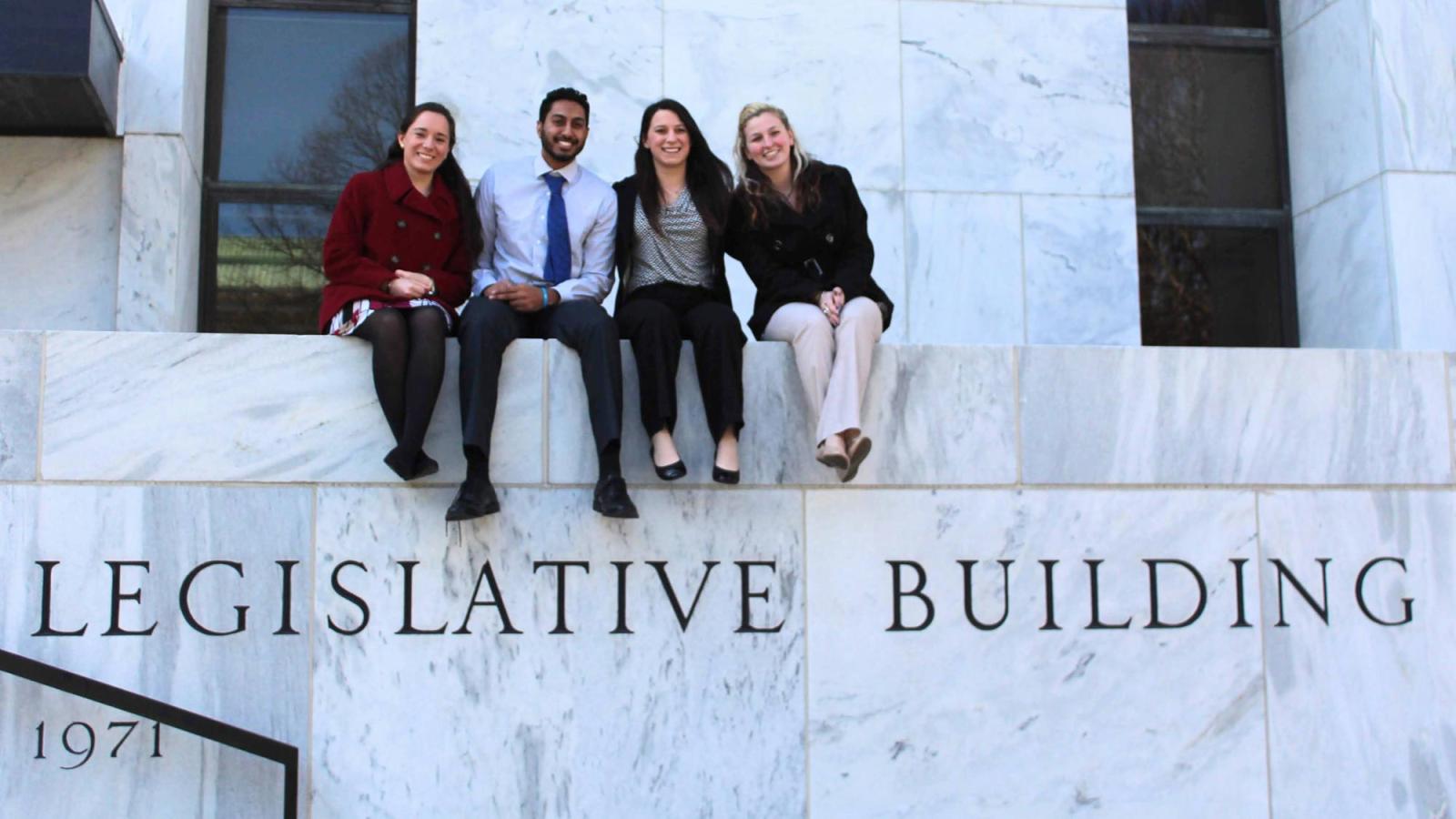

Ensuring elephants are protected from cruel treatment for entertainment purposes. Giving New York State greater control over what constitutes an endangered species. Requiring veterinarians to report suspected animal abuse.
These victories by the Pace Environmental Policy Clinic, founded in 2016, inspired its evolution into the new Animal Advocacy Clinic, where a select group of Pace students build on that legacy to lobby Albany lawmakers for better protection of the state's animals and wildlife. The Clinic is one of the many components of Pace's robust and growing Animal Policy Project, an initiative whose mission is to safeguard animals through policy design, reform, and advocacy.
The Clinic is far from your ordinary class. While no semester looks exactly the same, it typically starts out with intensive research about a particular topic, followed by lobbying simulations, sometimes with elected official, and concludes with trips to Albany to bring their bills to state assemblypersons and senators.
“The course trains students in legislative and regulatory lobbying and advocacy skills,” says Dyson Clinical Associate Professor of Environmental Science and Studies and Animal Policy Project Director Michelle Land, JD, who teaches the class alongside John Cronin, Seidenberg Director of Blue CoLab. “That means they can come into an issue as early as the initial research and understanding phase, where we have an idea of a problem, but don’t know much about it yet. The policy design is approached in collaboration with the students. We run it as if Professor Cronin and I are principals in a law firm, and the students are the associates.”
At the beginning of the semester, students are generally divided into three groups—with each group focusing on a particular issue the Clinic hopes to influence legislation around. This semester, for example, students are working on:
- Legislation that would make animal killing contests, competitions, tournaments, and derbys unlawful, has been introduced by NYS Assemblymember Deborah Glick and is currently In Committee
- Regulation that would prohibit the sale, trade, and import of the invasive red-eared slider turtle (as a pet) in New York State
- Redefining “wild animal” in New York State, so that animals like sloths are no longer permitted to be owned as pets (it is illegal to own a sloth as a pet in NYC, but not NYS)
After weeks of intensive research to understand all sides of an issue and the legal intricacies, students then begin to formulate their pitch and work with external partners for deep experiential learning. This semester, for example, the Clinic is partnering with the Humane Society’s New York State Director for the animal killing contest bill, and the class was recently treated to a Zoom session with the Sloth Conservation Foundation. The Clinic has also been taking advantage of the many resources Pace itself has to offer, including Haub Law School, who just so happens to have the number one environmental law school in the nation, to help with legal expertise.
“Yesterday in our clinic we had two law students joining us in a strategy session about one of our issues, and we also involve experts from outside,” notes Land. “We recently had the Sloth Conservation Foundation zooming in from Costa Rica to talk to us about sloth behavior related to a new issue that has come to our attention.”
Yesterday in our clinic we had two law students joining us in a strategy session about one of our issues, and we also involve experts from outside. We recently had the Sloth Conservation Foundation zooming in from Costa Rica to talk to us about sloth behavior related to a new issue that has come to our attention.
Then, toward the end of the semester, students are provided a unique opportunity to present what they’ve learned not to their professors—but to legislators and their staff. And in many respects, students present their findings not as undergraduates—but as de-facto lobbyists.
“We’re scheduling a day in April when we’ll have four or so meetings with legislators and their staff. Professor Cronin and I blend into the wall. The students are leading the discussions.”
For Madelyn Garcia ’24, the course has provided an opportunity to learn about the legislative process in a collaborative and supportive environment. Garcia notes that the skills she's learned from the class were instrumental in helping her secure an internship with the conservation organization Defenders of Wildlife this summer.
"It has been a pleasure to learn about the legislative process and engage in campaigning with my classmates," says Madelyn. "The chance to convey crucial messages to our campus community is essential in fostering activism and driving change. It also benefited working together as a team—we were able to get 500+ signatures in support of Assembly Bill A.5746, both in person and on our campaign Instagram account."
Land has been thoroughly impressed by the students’ dedication and drive and continues to be inspired by their professional transformation over the span of a few short months.
“You see their confidence develop,” says Land. “From the first time they practice their elevator pitch, to when they’re in Albany lobbying for real. The confidence and level of polish is remarkably transformed over a couple of months.”
While the course technically ends in the spring, the successive wins that Land, Cronin, and students have built over the past several years have enabled the Clinic to evolve into something more.
“While it is a Dyson undergraduate course, we’re starting to build this scaffolding that makes it more than a three-credit, spring class. By bringing in the Haub Law students to tackle things unique to environmental law, or maybe partnering with Seidenberg to involve real-time monitoring technology—I would love to see us create this network that bridges the technical expertise across the University. That’s my vision.”
Thanks to the hard work of everyone involved in the Animal Advocacy Clinic, that vision is steadily becoming a reality.
Want to learn more about the Animal Advocacy Clinic? Learn about what they’re up to on Instagram, or visit the Animal Policy Project website.
More from Pace Magazine
Pace’s best kept secret is also New York’s smallest library. Pace’s Zine Library is under 100 square feet but what it lacks in size it makes up for in unique literary sources, student-created research, and pedagogical resources for faculty looking to change things up in the classroom.
From professional quality documentary production to in-the-field athletics coverage, students in the Media, Communications, and Visual Arts department on the Westchester Campus are gaining valuable experience.
Through interdisciplinary collaboration, the School of Education and Dyson's Film and Screen Studies departments are helping a major school district in Florida tackle the challenges of today’s teacher shortage head-on.
The Special Agent: Damian Salvati '87
Retired special investigative agent Damian M. Salvati’s ethos of ethics and teamwork in his government career grew out of his days as a Dyson journalism major.
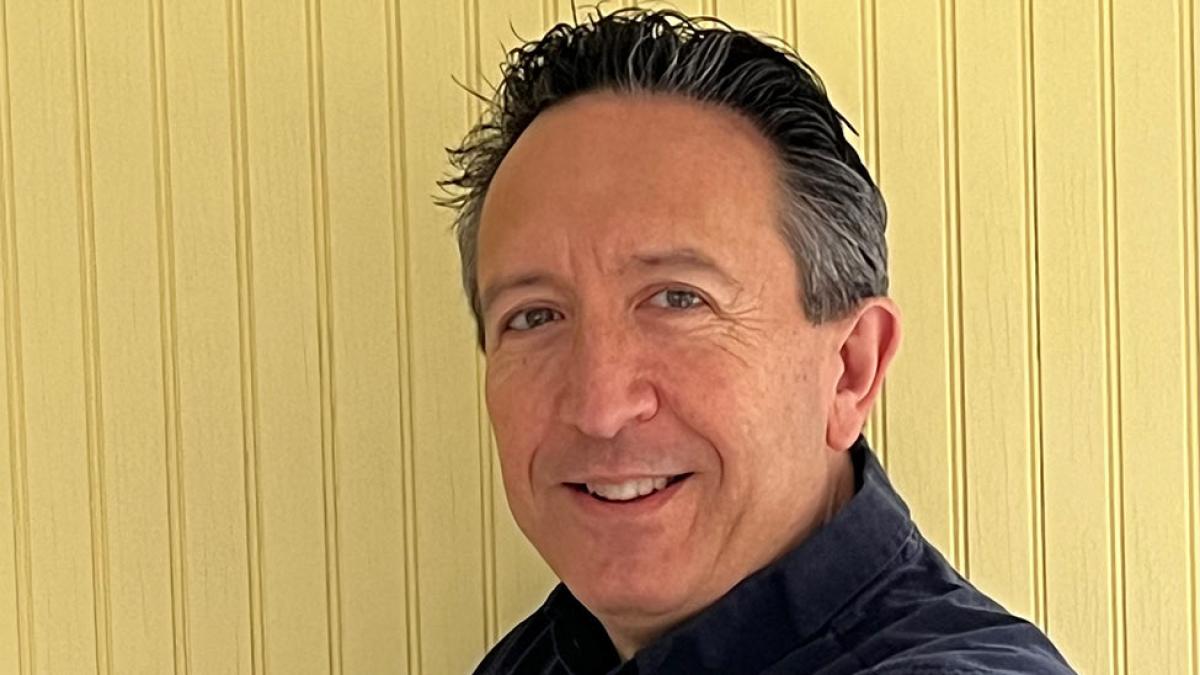
You’ve had an impressive 30-year career as a special agent in the Office of Inspector General, US Department of Housing and Urban Development, and previously, in the US Immigration and Naturalization Service, as an immigration agent and inspector.

What are you most proud of about your career? How has your work been meaningful to you?
I am most proud of my reputation as a hard-working agent who was going to exhaust all investigative techniques, while still conducting a fair and impartial investigation. I worked with many different law enforcement agencies throughout my career, and it was the utmost compliment when a federal prosecutor or another federal agency called and wanted me to join them on a case. I had the privilege of being assigned to many high-profile, complex investigations and always working with a great team.
This type of work has been meaningful in many different ways. It was my responsibility to ensure that the billions of dollars that the federal government disbursed each year were being used correctly, as fraud, waste, and abuse are not how taxpayers want to see their money spent. Each day was different because investigations could be simple or complex, so it was challenging and exciting at the same time. My job also allowed me to create and establish excellent professional relationships within the local, state, and federal law enforcement communities, and several became friendships over the years.
You graduated with a Bachelor of Arts in Journalism* from Pace. What attracted you to pursue this course of study?
When I was growing up, I enjoyed playing sports and following the local professional sports team. I wanted to be a sportscaster because I watched countless games on television and listened to others on the radio. I wanted to attend a small institution where I would have opportunities to succeed, and Pace University was a small enough school where I could get the attention from professors that I needed to develop my craft, as well as form relationships with students who shared similar goals.
How did you get started in your career?
After a few years of struggling in the broadcast industry with jobs that were seasonal or canceled by the network, I was looking for more job security. I began taking various law enforcement exams and, in 1991, was fortunate to get hired by the Immigration and Naturalization Service, where I worked for almost six years. I then wanted to pursue investigative work and spent another six years in Chicago working on a drug task force, furthering the US Department of Housing and Urban Development, Office of Inspector General’s mission of Operation Safe Home. As my wife and I wanted to move back to the east coast to be closer to family, I next accepted an opportunity to transfer to our Newark, New Jersey office. There, I worked on white collar fraud cases, ranging from public corruption and bribery to wire fraud and mail fraud, until I retired from government in 2021. Today, I am a compliance investigator at Rutgers University, with the same work ethic and drive as when I was a special agent.
How has a degree in journalism prepared you for your career, and do you have any thoughts on the importance of a liberal arts education?
My degree in journalism has played a significant role in my law enforcement career because, in this profession, you must document everything that you do. I authored countless memoranda of interviews, summaries of investigations, reports of investigations, and more, which were viewed by my supervisors, federal prosecutors, district judges, other law enforcement agencies, and defense attorneys. I received countless compliments on how well the reports were written, and others were never surprised when I told them I had a journalism degree. I was confident in writing those reports because of my education.
College is a significant time in a person’s life. A first-generation college student, were certain Dyson faculty or other members of the Pace community instrumental in your personal and/or professional journey? How did your time as a Dyson student influence you to become the person you are today?
I was in several journalism classes with Professor Denis Hurley, who had an infectious personality, kept me interested in journalism, and was very attentive. I also had the honor and privilege of playing for the men’s lacrosse team under the direction of Pace University Hall of Fame Coach Dan Mulholland from 1983-1987. He was a great communicator and treated us all equally, including making sure we were succeeding in the classroom as well as on the field. He made me a better lacrosse player, a better person, and after four years without me knowing it, had prepared me for the real world.
My time as a Dyson student taught me how to study independently and work on a team to get a project done. When writing for the Prestonian (the then-campus newspaper), I was expected to meet deadlines, a good learning experience that helped me handle similar expectations in my government career.
What advice would you give to our students, as they navigate their college life?
Respect other people’s stories even if they are different from your own. College can be a stressful time, so it is important to be kind, respectful, and open minded to different ideas. Respect the diversity of the student body. Be very careful what you post on social media, as employers are looking on social media to learn more about an applicant and one bad choice could disqualify you from that position. Finally, don’t be afraid to go outside of your comfort zone and try different classes or clubs you wouldn’t normally choose. Enjoy your college life!
*this degree is now a BA in Digital Journalism.
More Alumni Stories
Uruguay native, entrepreneur, and Acting alumnus Octavio Yattah ’19 shares his love of taking on challenges and making his dreams a reality.
MS in Publishing alumna Dena Mekawi ’15, a 40 Under 40 awardee from the Arab America Foundation, uses her business consultancy to elevate underrepresented communities in media and advertising.
Bronx native and senior human resources executive Peter Fragale '88, Criminal Justice, has provided critical workforce support during the COVID-19 pandemic.
Faculty Focus: University Distinguished Professor Bridget Crawford
Professor Bridget Crawford has been a professor at Haub Law since 2003 and was named a University Distinguished Professor in 2021, which is the highest honor the University can bestow upon a faculty member. Prior to joining the Haub Law faculty, she was a practicing attorney at Milbank LLP, where she specialized in taxation and estate planning. At Haub Law, Professor Crawford teaches Federal Income Taxation; Estate and Gift Taxation; Wills, Trusts and Estates; Tax Policy; Corporations & Partnerships; and Feminist Legal Theory. Professor Crawford is a leading authority on taxation, as well as feminist legal theory, and menstrual equity. A favorite in the classroom, she has also been honored multiple times by graduating students at Haub Law as Outstanding Professor of the Year, as well as recognized by her colleagues with Haub Law’s Faculty Award for Excellence in Teaching.
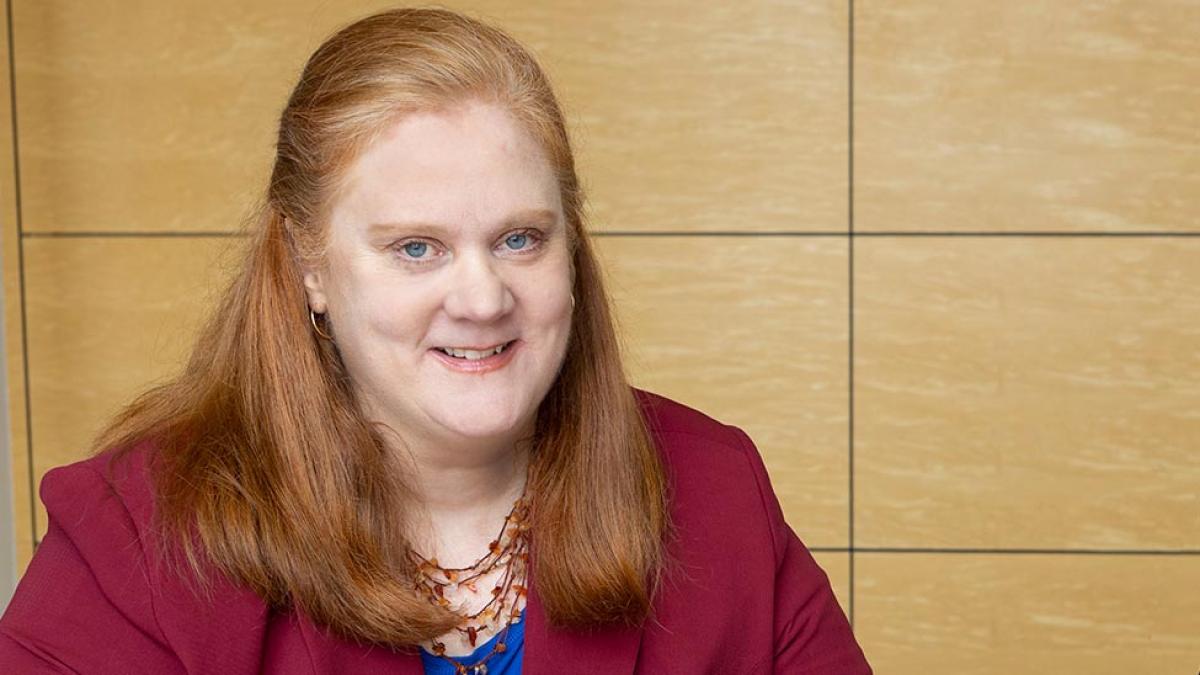
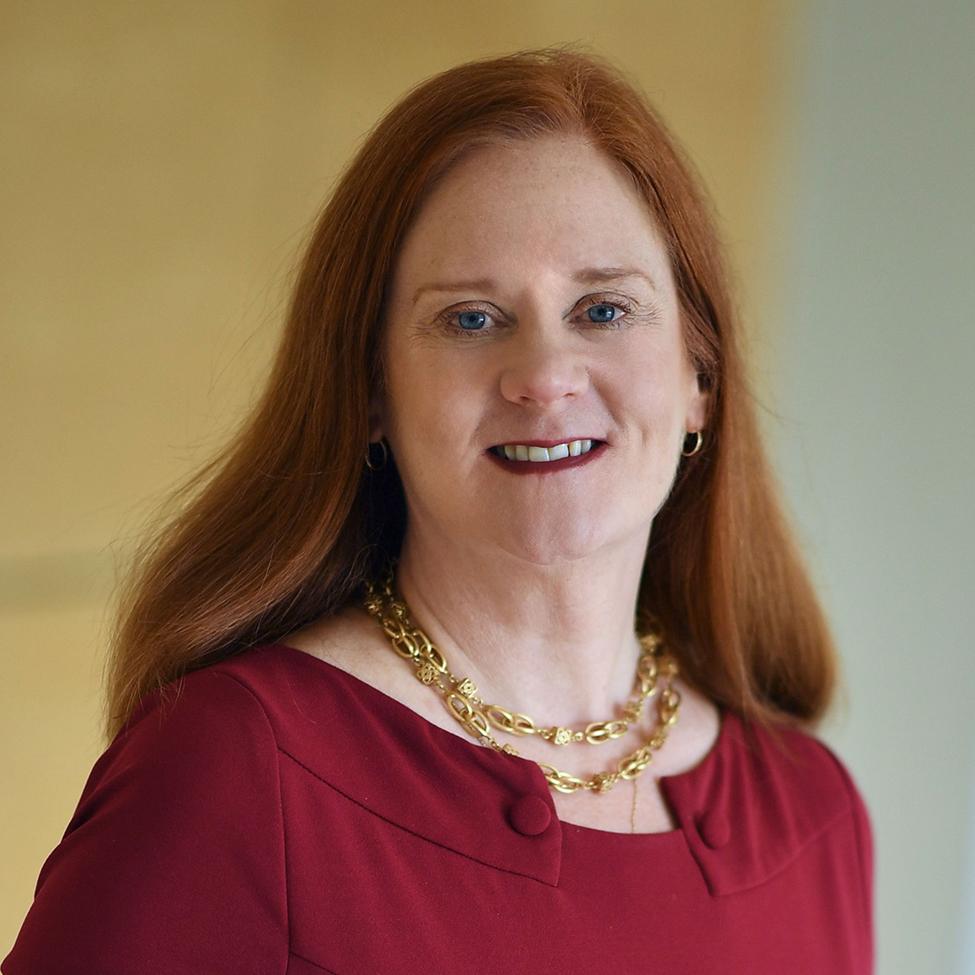
Professor Bridget Crawford has been a professor at Haub Law since 2003 and was named a University Distinguished Professor in 2021, which is the highest honor the University can bestow upon a faculty member. Prior to joining the Haub Law faculty, she was a practicing attorney at Milbank LLP, where she specialized in taxation and estate planning. At Haub Law, Professor Crawford teaches Federal Income Taxation; Estate and Gift Taxation; Wills, Trusts and Estates; Tax Policy; Corporations & Partnerships; and Feminist Legal Theory. Professor Crawford is a leading authority on taxation, as well as feminist legal theory, and menstrual equity. A favorite in the classroom, she has also been honored multiple times by graduating students at Haub Law as Outstanding Professor of the Year, as well as recognized by her colleagues with Haub Law’s Faculty Award for Excellence in Teaching. Learn more about Professor Crawford in this Q&A.
How did you become interested in tax?
My grandmother was the first tax professional I ever met. Although she never went to college or law school, Gram taught herself the tax law and went to work for H&R Block. She lived in a rural community in southeastern Ohio, in the foothills of the Appalachian Mountains. Gram took great pride in helping her neighbors comply with their obligations under the complicated self-reporting system that we have in the U.S.
What is your favorite tax concept or case?
If I ever got a tattoo, it definitely would be a quote from Welch v. Helvering, 290 U.S. 111 (1933). That is the case that established the test for when a business expense is “ordinary and necessary.” Justice Cardozo said that when no ready test or statute is available, “[l]ife in all its fullness must supply an answer to the riddle” that is the tax law.
What do you find most enjoyable about being a professor?
I love helping students understand the complexities of the law, develop critical thinking skills, and become more confident in their abilities. In Federal Income Tax class, students may start out intimidated by the statute and regulations, but by the end of the semester, they know exactly how to work with the most complex rules. The tax code yields its secrets with careful study and time spent! As a law professor, I have the opportunity every day to help guide students from diverse backgrounds and perspectives as they develop into the professionals they want to become. I have great confidence in the future of the legal profession and our students are going to be leading the way.
Every year, you host a “Tax Alumni Come Back to the Classroom” event – where you invite former students to come speak to your current tax class. What benefit do you feel experiences like this have for both the students and alumni?
The purpose of this program is to connect current law students with alumni and inspire students to think about their future careers. In law school, we hear all the time about the value of “networking,” but sometimes it is hard to know how to go about it. This program aims to make it easier by providing a day dedicated to networking. Students also do readings to encourage self-reflection on how they are using their time in law school and what various career paths are available. The alumni are willing to offer guidance and support to students as they navigate law school and the legal profession. They are also happy to share their contacts and help in any way they can.
You recently published a book with Professor Emily Waldman called Menstruation Matters: Challenging the Law’s Silence on Periods. What inspires a tax professor to write a book about menstruation?
It all started as a tax story. I had been living in New York for more than twenty years before I realized that the sales of menstrual products like tampons were subject to tax. That made absolutely no sense to me. I started doing some research and I wrote an article explaining why I thought the “tampon tax” was a human rights issue. When I was presenting my work in one of our regular faculty colloquia, I mentioned that there was a class action brought in New York challenging the tampon tax, and Professor Waldman asked me about that. One conversation led to another and we decided to write an article explaining the argument that the sales tax on menstrual products violates the Equal Protection Clause. New York repealed its sales tax in 2016, but our article is now the basis for a state-by-state challenge to the sales tax on menstrual products. The more we spoke about the tampon tax, the more we realized that menstruation touches on everything – schools, employment, prisons, environmental law, poverty law, corporate law. We teamed up to write the book to show that menstruation is a baseline justice and equity issue.
What are some of the tax rules that disproportionately impact women and families?
The tax code does not recognize the value of unpaid caregiving work that is often performed by women, such as caring for children or elderly relatives. This can leave women with fewer retirement savings and lower Social Security benefits. What would the law look like if society truly valued caregiving?
Your writing is frequently published in prestigious journals – what advice do you have for law students who may want to start trying to publish papers?
Write about what you want to understand, what makes you mad, what makes you happy, what you want to fix. Just write. There is no better way to teach yourself an area of law then to try to explain it in writing to someone else. Your professors are here as resources, too. There are lots of publication outlets that need and want to hear from students and lawyers of all levels of seniority.
Do you have any techniques to propel your own writing?
At least once a semester, Professor Leslie Tenzer and I have a writing challenge. There are only two rules: set your own goals and bring positive vibes only. We then report our progress on a shared spreadsheet. The mutual accountability and encouragement is really helpful. There have been so many times where I haven’t wanted to write, I feel like I’m not getting anywhere, and I have wanted to quit the writing challenge. What I’ve learned from these experiences, though, is that the key is to be consistent and show up. We write even when we don’t feel like it and we encourage each other through the inevitable rough patches. My goals are usually relatively small—20 minutes of writing each day— but I end up with an outline, a first draft, or progress that I otherwise would not have made. The best thing about writing is having written. Anyone who wants to join our writing challenge is totally welcome. It works!
What is something that your students may not know about you?
Dean Horace Anderson and I were first-year study partners in law school. He has always been brilliant, and without him, I would have never made it through Constitutional Law!
If you were not a law professor, or an attorney, what other profession could you see yourself pursuing?
As long as I am being useful, then I can be happy doing anything. I’m interested these days in all things technological. What if there was a program that accurately calculated our taxes for us? What if it was as easy to make a will online as it is to order a pizza? What if depositions were conducted via artificial intelligence? Could decentralized digital currency be the key to a universal basic income? How can we harness machine learning to eliminate bias in hiring and lending? I am so interested in all of these questions.
